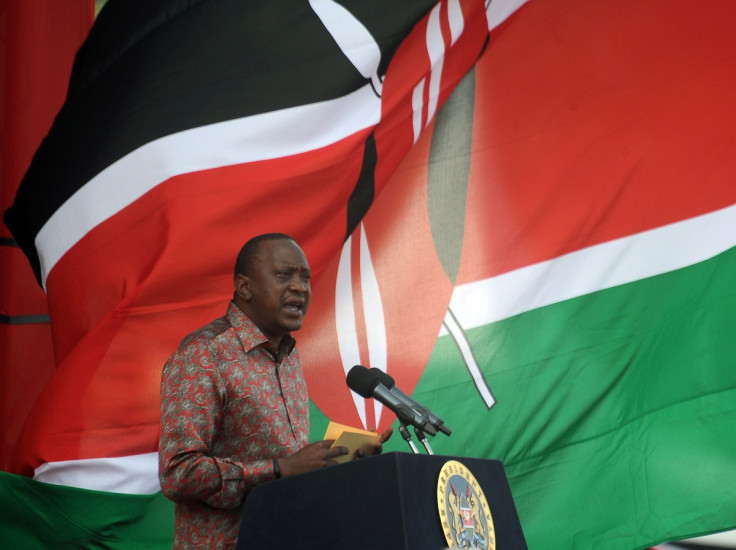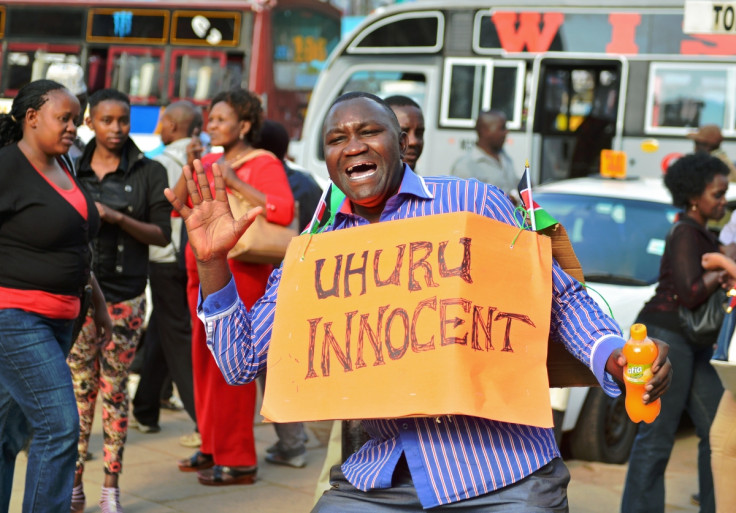Kenya: President Kenyatta asks MPs to approve ICC withdrawal, but court warns of penalties

Kenya's President Uhuru Kenyatta has formally asked MPs to approve laws to pull Kenya out of the International Criminal Court's founding Rome statute, as he hits the campaign trail ahead of the 2017 election.
In September 2013, a Kenyan parliamentary vote supported the government's proposal to withdraw from the ICC, but the African nation was plunged into a political crisis when six Kenyans – including Kenyatta – were charged with crimes against humanity for their alleged leading roles in 2007-2008 post-election violence that left more than 1,000 people dead and forced 600,000 from their homes.
All charges against Kenya's president were dropped in December 2014, emphasizing the ICC's difficulties in prosecuting high-level officials it has accused of atrocities. The Kenyan ICC saga, meanwhile, looked like it had ended when the tribunal ended Deputy President William Ruto's trial at the Hague at the beginning of April this year.
But on 19 April, ICC spokesman Fadi El Abdallah reminded Kenya it has the legal obligation to fully cooperate with the ICC including for the implementation of arrest warrants. El Abdallah warned the government might face penalties if it fails to hand over three suspects – Walter Barasa, Paul Gicheru and Philip Kipkoech Bett – wanted by the court on charges of obstructing the course of justice in the case against Ruto and journalist Joshua Sang.
Kenyatta: 'No other Kenyan will go to the ICC'
The penalty threats come three days after Kenyatta vowed that no other "Kenyan would go to the ICC" at a rally at Nakuru's Afraha Stadium, adding that he would fast-track the process of withdrawing the country from the court.
"I will not allow any other Kenyan to be tried in a foreign country. My solemn vow is that never again will the country fight over political rivalry. The ICC and Hague chapter is closed permanently and those who benefited should know that we are now a very peaceful and God-fearing country," Kenyatta told the crowd during the rally.

"It has been nine short years of the journey to healing. We have renewed our national covenant to live peacefully and we are fully aware that we wronged each other. We have forgiven each other. It's now time to heal our wounds, then we compensate the remaining IDPs (Internally Displaced Persons)."
Kenyatta's motion to pull Kenya out of the ICC was slammed by Senator and ex-Minister for Foreign Affairs Moses Wetang'ula, who alleged a withdrawal would leave the nation vulnerable to organised criminals on politicians' payrolls. Speaking at Manyatta in Kajiado Central constituency, the Daily Nation reported him as saying, "Kenya must remain in the Rome Statute to check the actions of some leaders".
ICC, 'biased' towards African continent?
Several African states, which form majority of the 124-strong ICC membership, have announced their intention to pull out of the court, as they say all the 23 cases the ICC is investigating are in Africa – something they perceive as being be biased only towards the continent.
Countries including Uganda and South Africa have reminded the international community that the ICC has never opened an official investigation outside of Africa since it was established in 2002.
In 2015, Zimbabwean President Robert Mugabe, called on African leaders to establish an ICC which would be mandated to prosecute Western leaders who have committed crimes on the African continent. At the time, the nonogenarian said the court should try former British PM Tony Blair and ex-US president George W Bush.
© Copyright IBTimes 2025. All rights reserved.






















